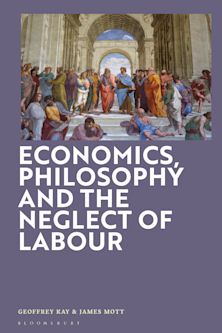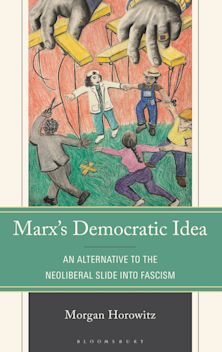The Rule of Law and Governance in Indigenous Yoruba Society
A Study in African Philosophy of Law
The Rule of Law and Governance in Indigenous Yoruba Society
A Study in African Philosophy of Law
Description
In The Rule of Law and Governance in Indigenous Yoruba Society, John Ayotunde Isola Bewaji has two main goals. The first is to provide an exploration of aspects of indigenous Yoruba philosophy of law. The second is to relate this philosophy of law to the Yoruba indigenous traditions of governance, with a view to appreciating the relevance of the Yoruba traditions of law and governance to contemporary African experiments with imported Western democracy in the 21st century. This book is devoted to what can be described as a juridical forensic investigation of Nigeria’s predicament of developmental deficit, leading to gross and unconscionable impoverishment of large segments of the population, in the midst of so much natural resources and abundant human capital, using Yoruba indigenous legal traditions as reflective template. Bewaji urges that Africa has to take seriously the necessity of obedience, observance, enforcement and operation of law as no respecter of persons, groups, affiliations and pedigrees as was in the case in the societies founded by our ancestors, rather than the present scenario whereby the highest bidder procures semblances of justice from a crooked system of common law which was never designed to be fair, equitable and just to the disadvantaged in society.
Table of Contents
Chapter 1 The Social Contract - the Foundation of Yoruba Society
Chapter 2 The Concept of Law in Yoruba Society
Chapter 3 The Rule of Law in Yoruba Society
Chapter 4 Aspects of Legal Education in Yoruba Society
Chapter 5 Parallel Epistemologies, Parallel Justice Systems in Yorubaland
Chapter 6 Human Rights in Yoruba Society
Chapter 7 Religion, Authority, Law and Order in Yoruba Society
Chapter 8 Social Ethics and Value in Africa
Chapter 9 Law, Order, Esu and Liminality in Yoruba Society
Chapter 10 Culture, Property Rights and Risk Management in Africa
Conclusion
Product details
| Published | Aug 22 2016 |
|---|---|
| Format | Ebook (Epub & Mobi) |
| Edition | 1st |
| Extent | 288 |
| ISBN | 9781498518383 |
| Imprint | Lexington Books |
| Series | African Philosophy: Critical Perspectives and Global Dialogue |
| Publisher | Bloomsbury Publishing |
Reviews

ONLINE RESOURCES
Bloomsbury Collections
This book is available on Bloomsbury Collections where your library has access.



































